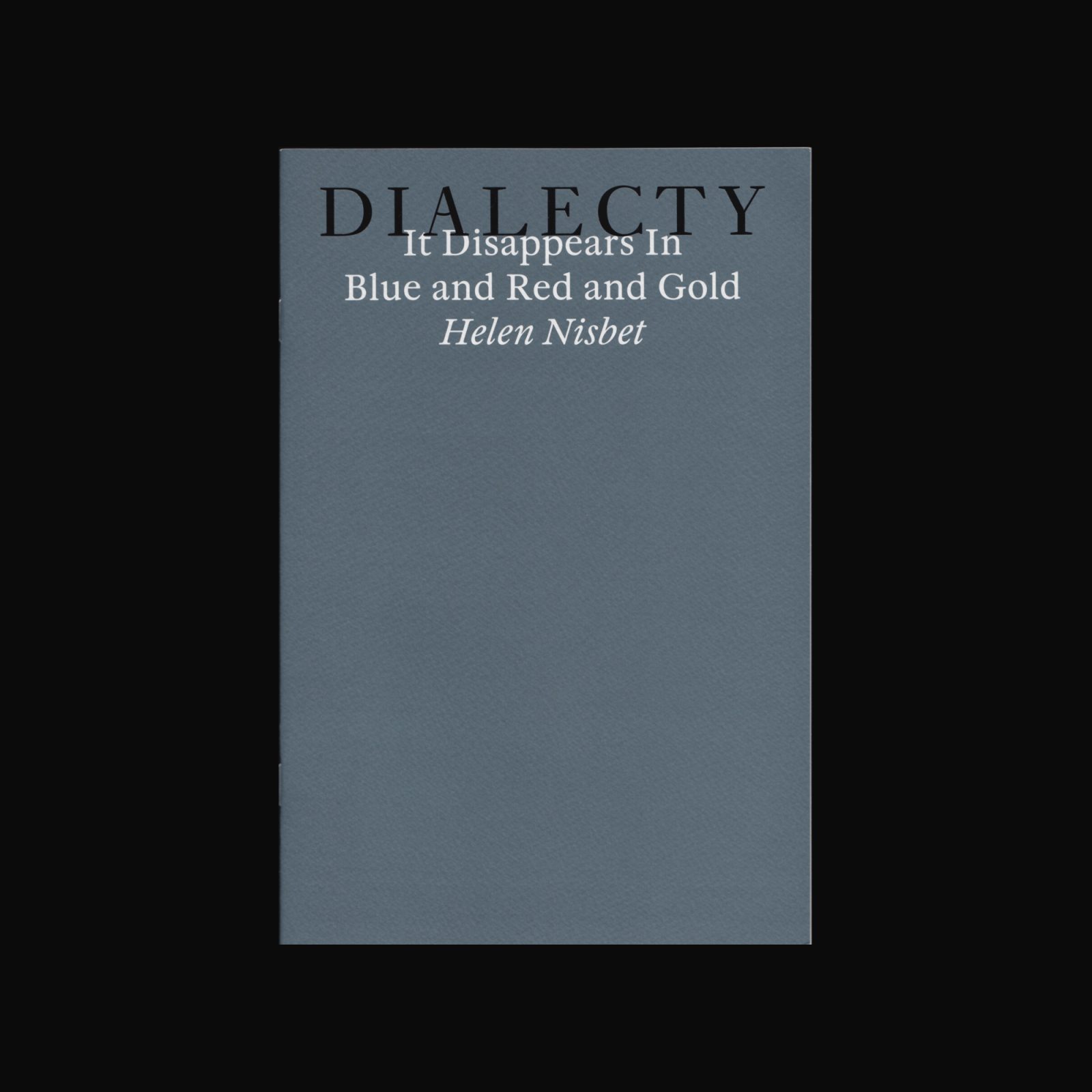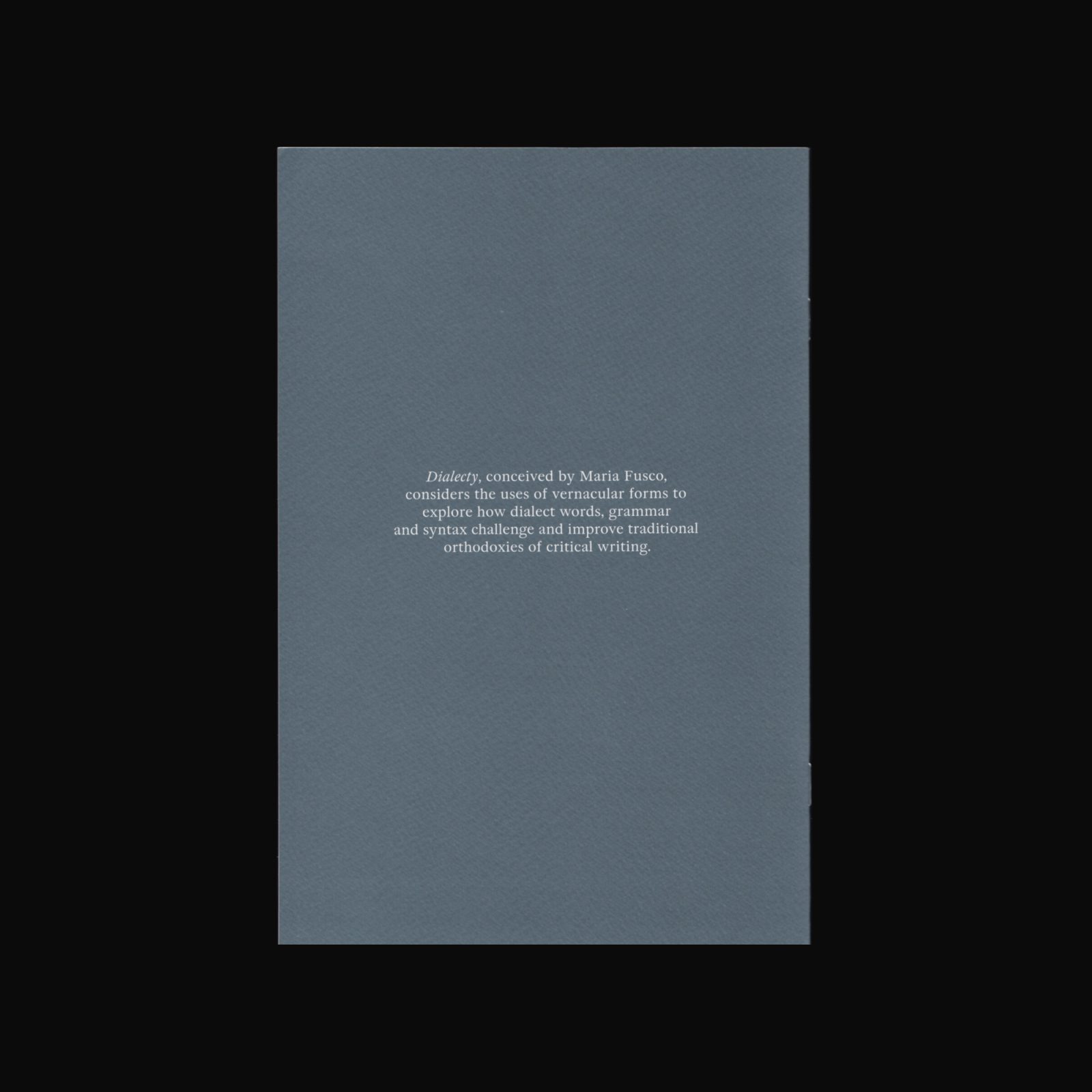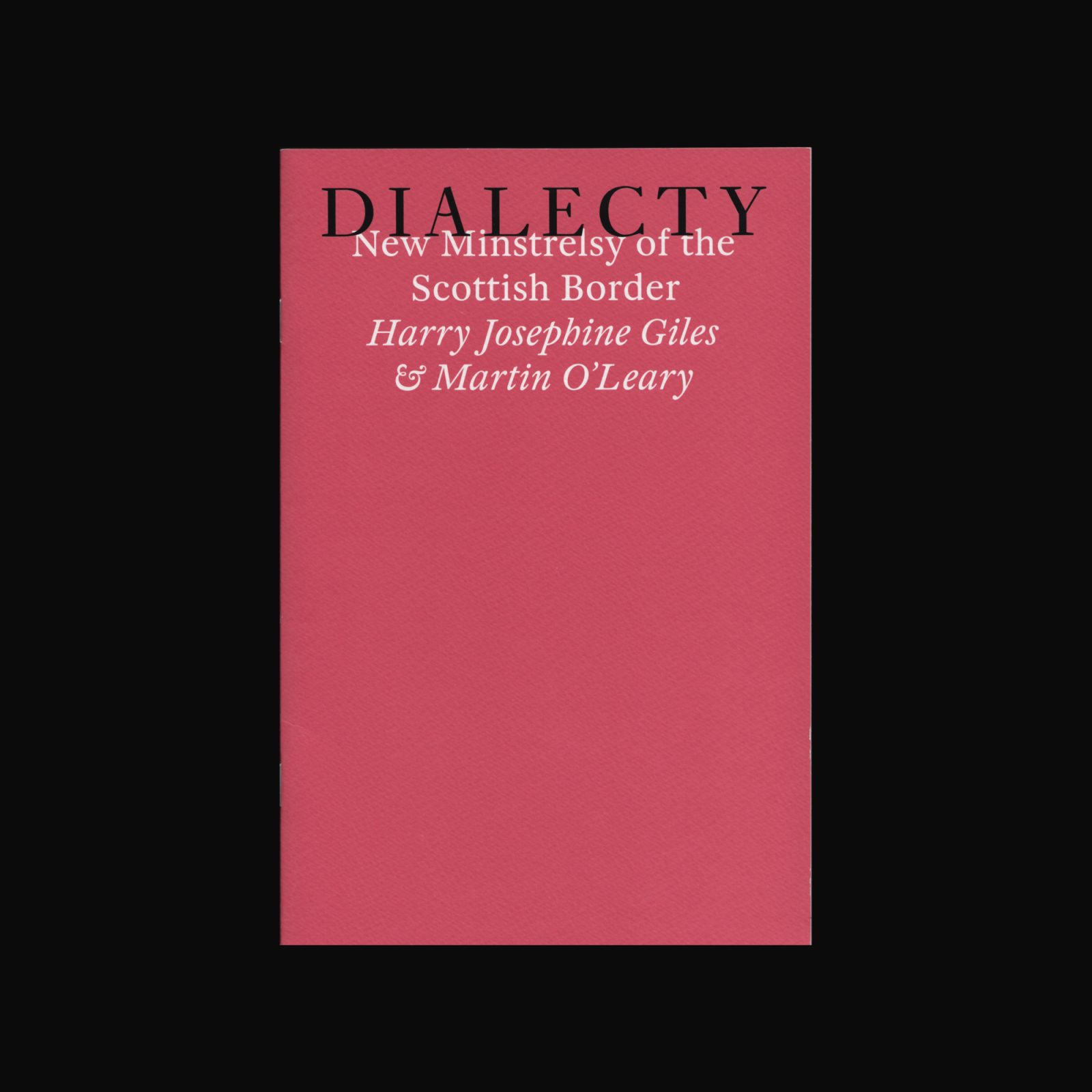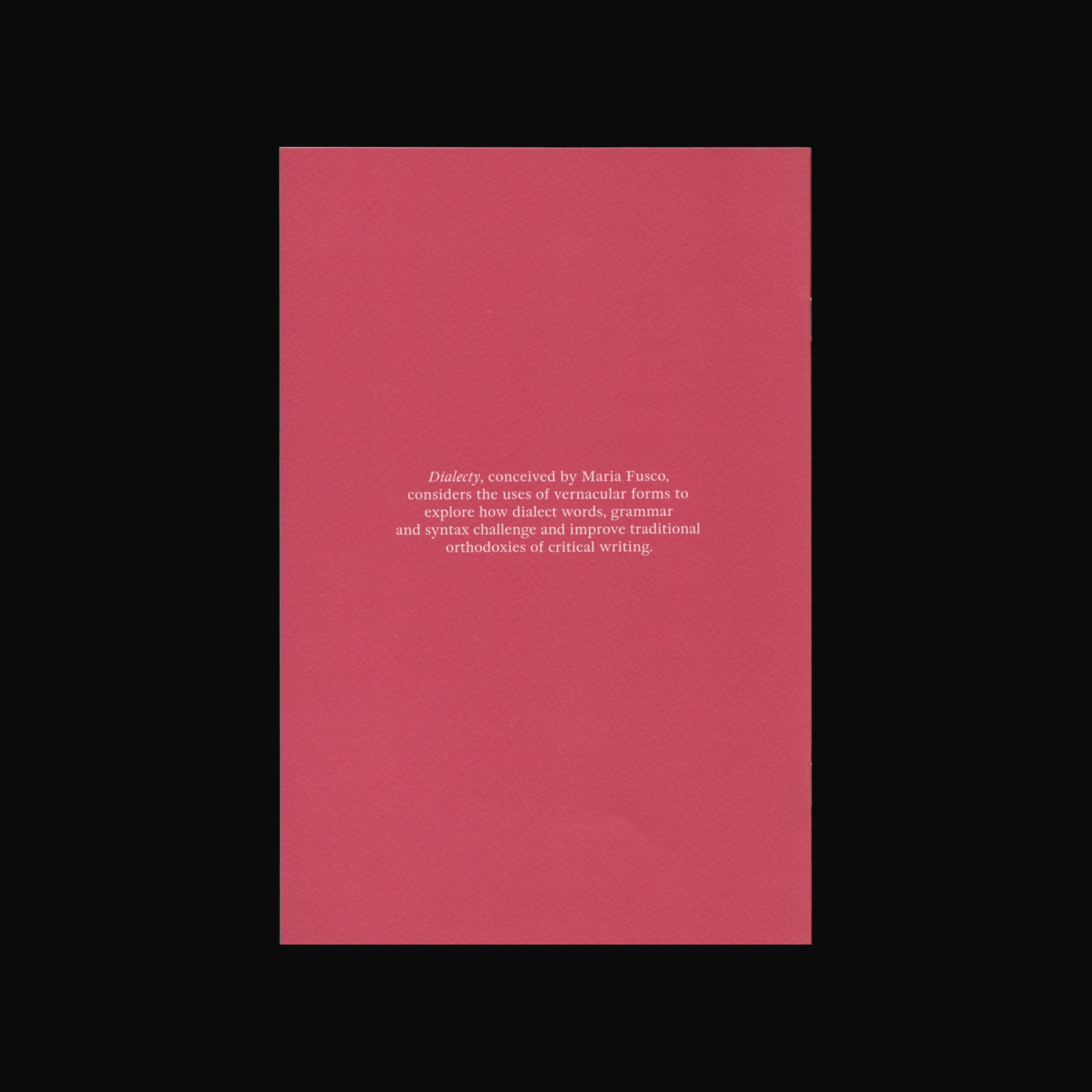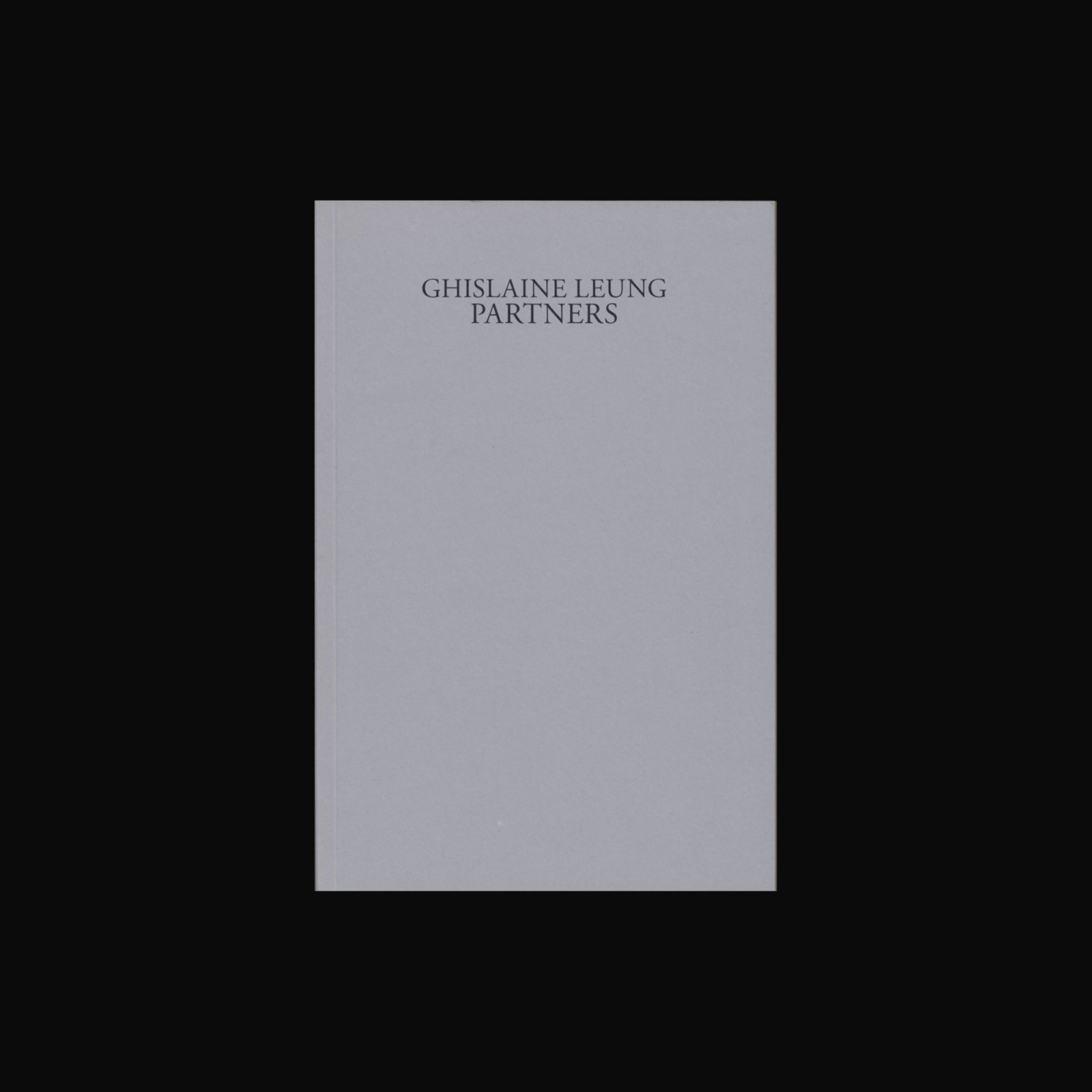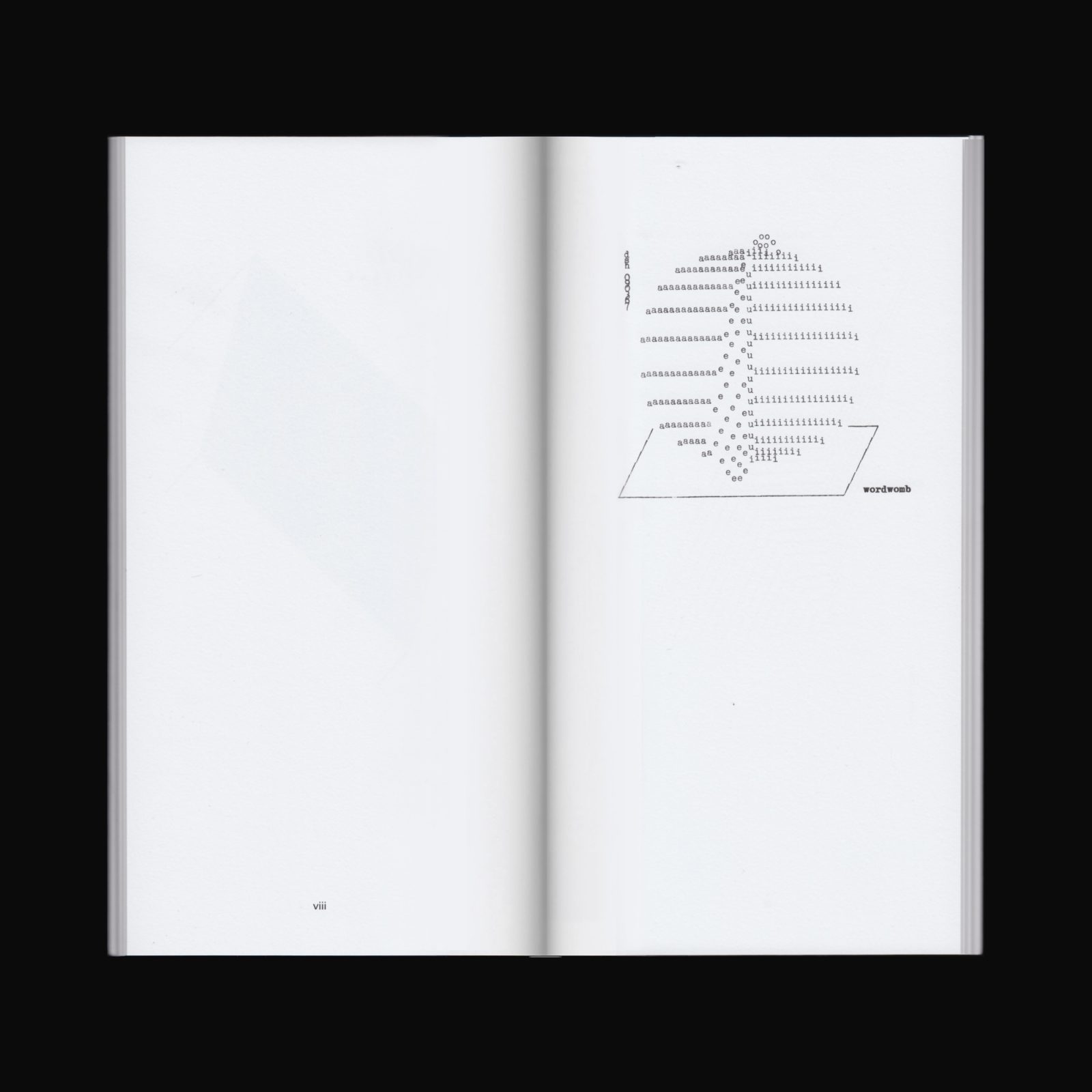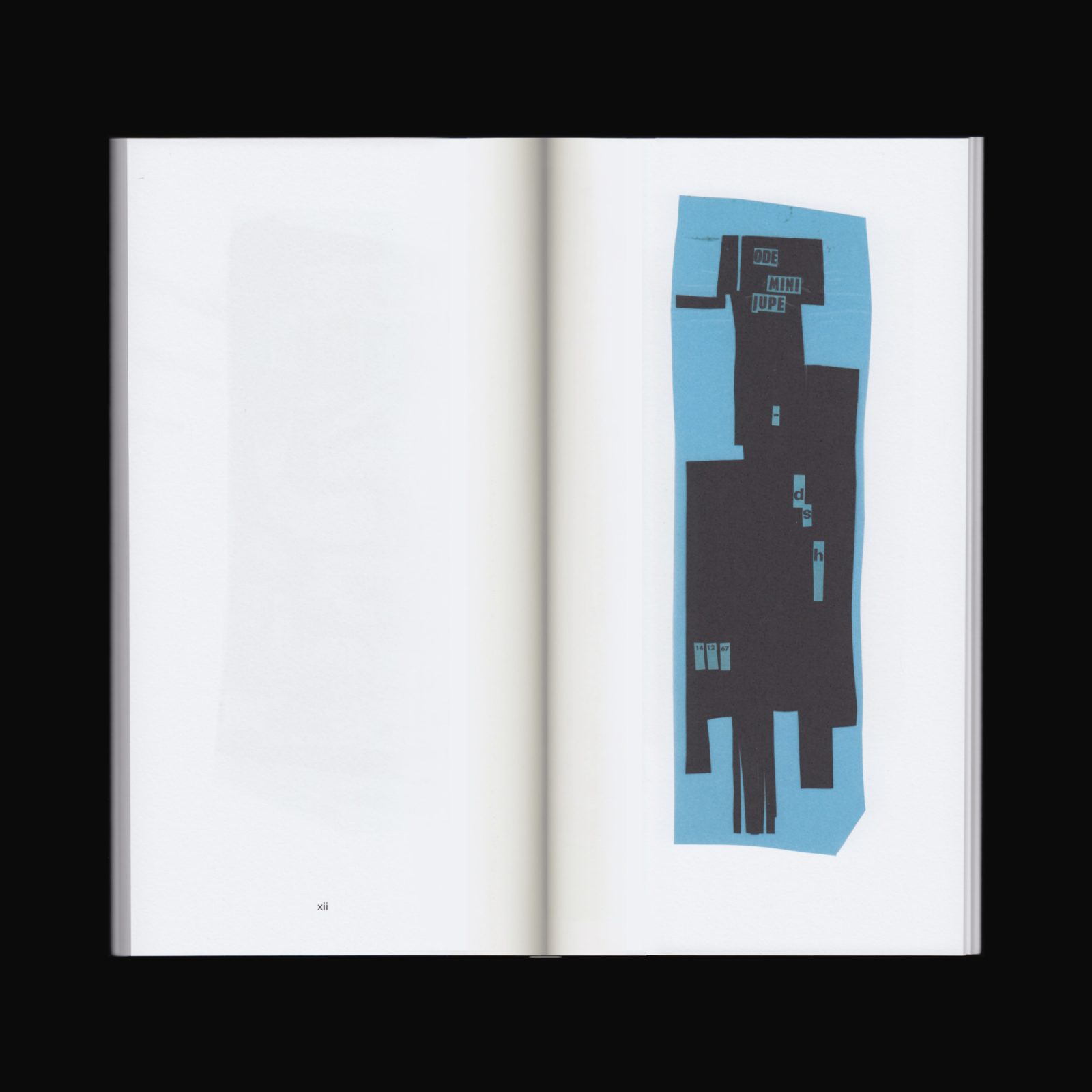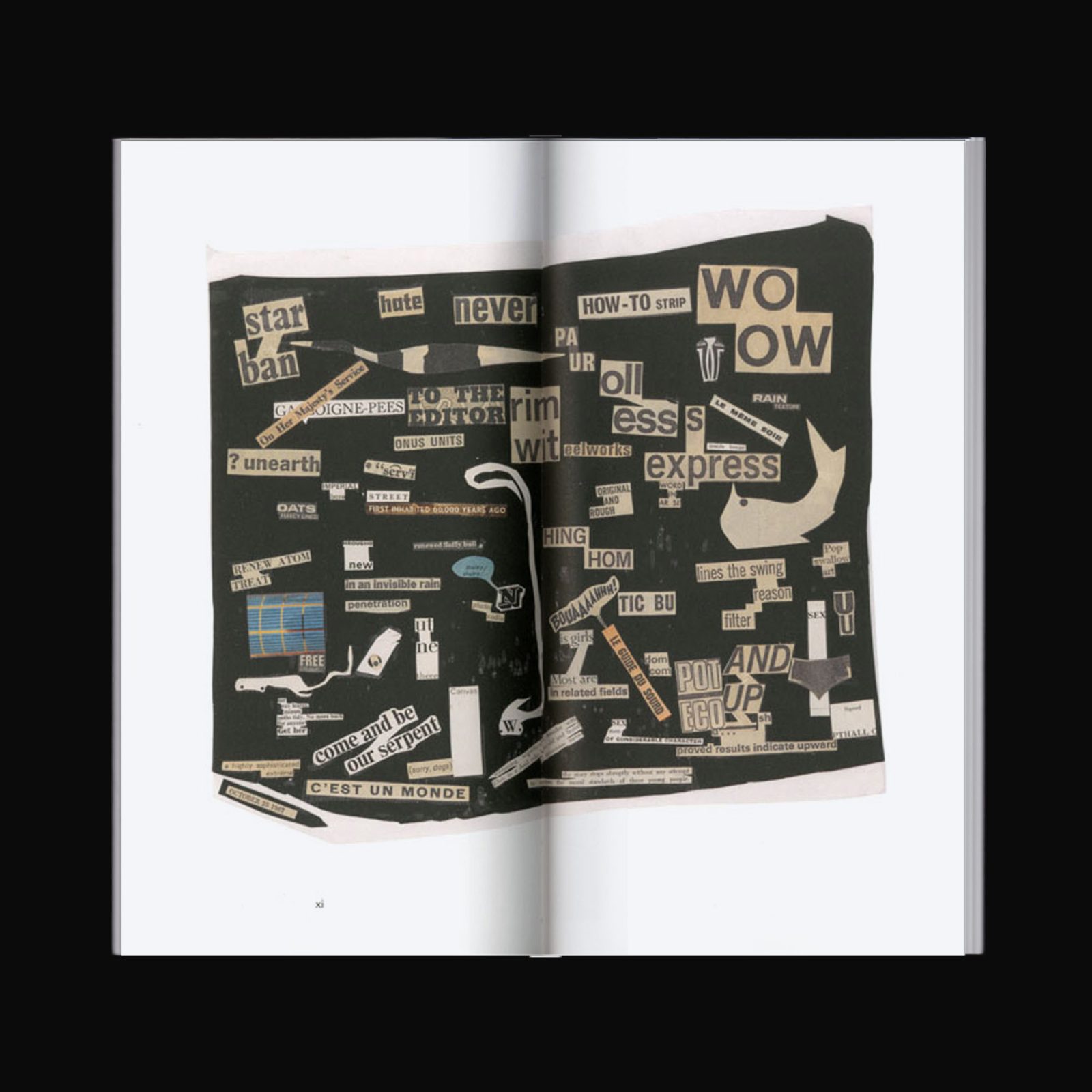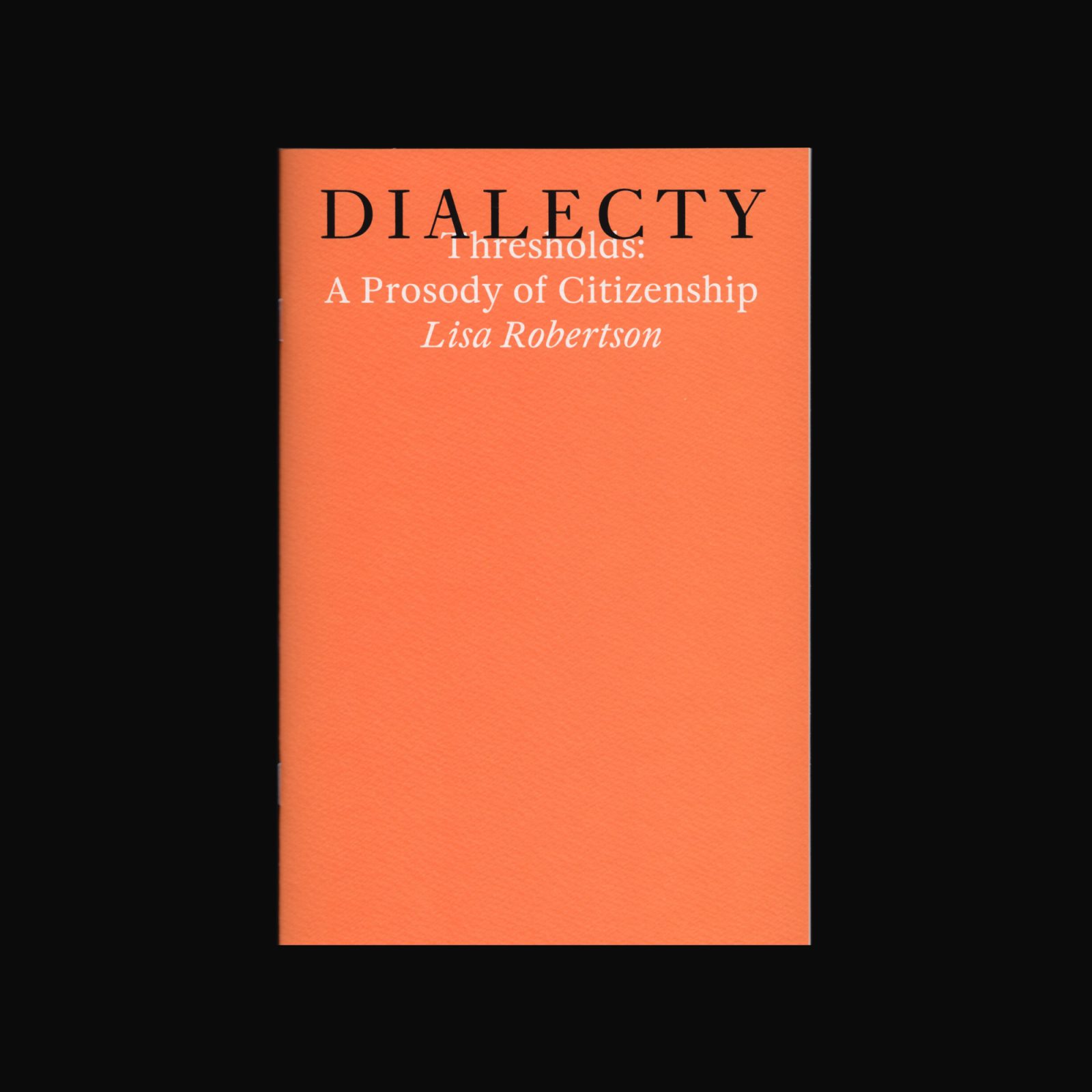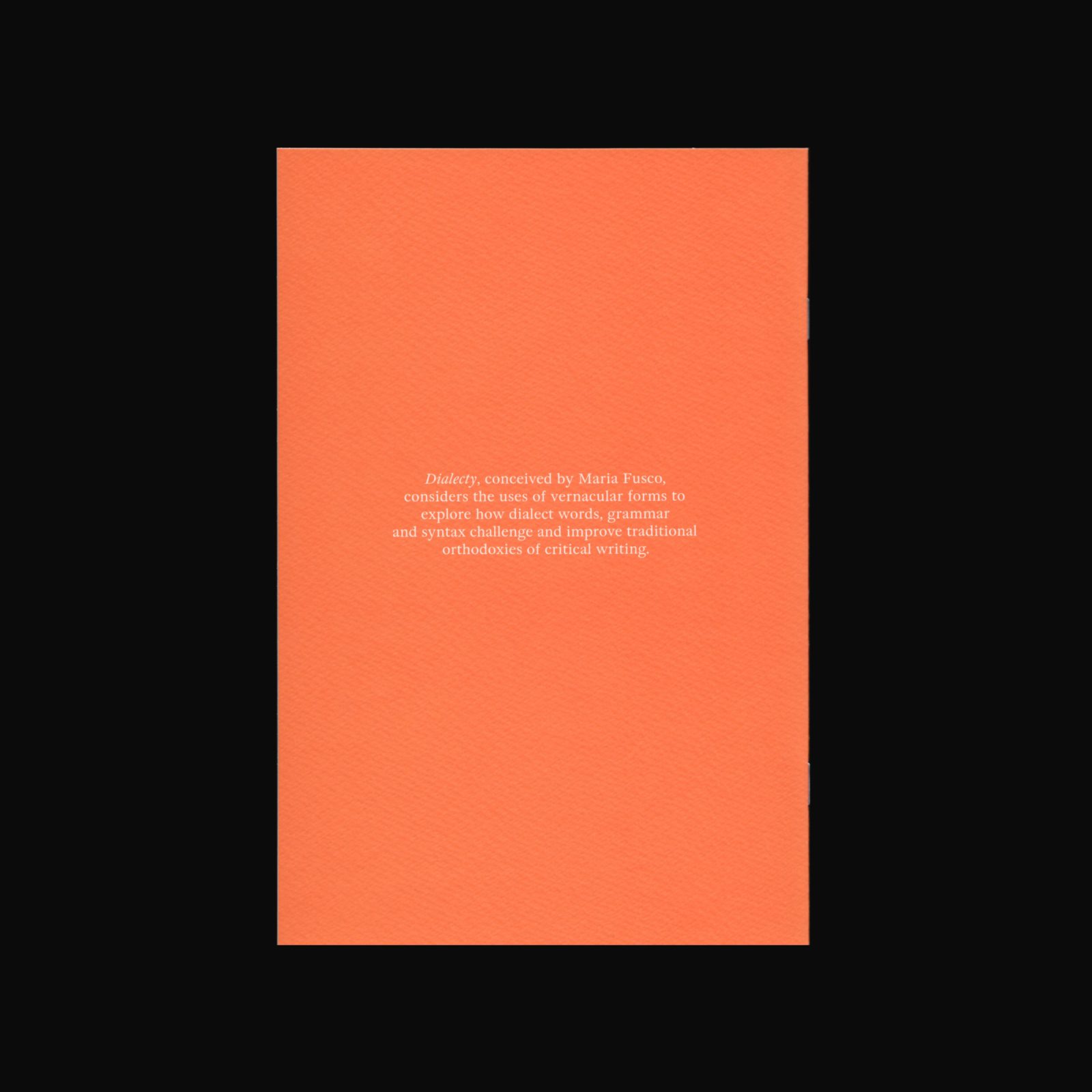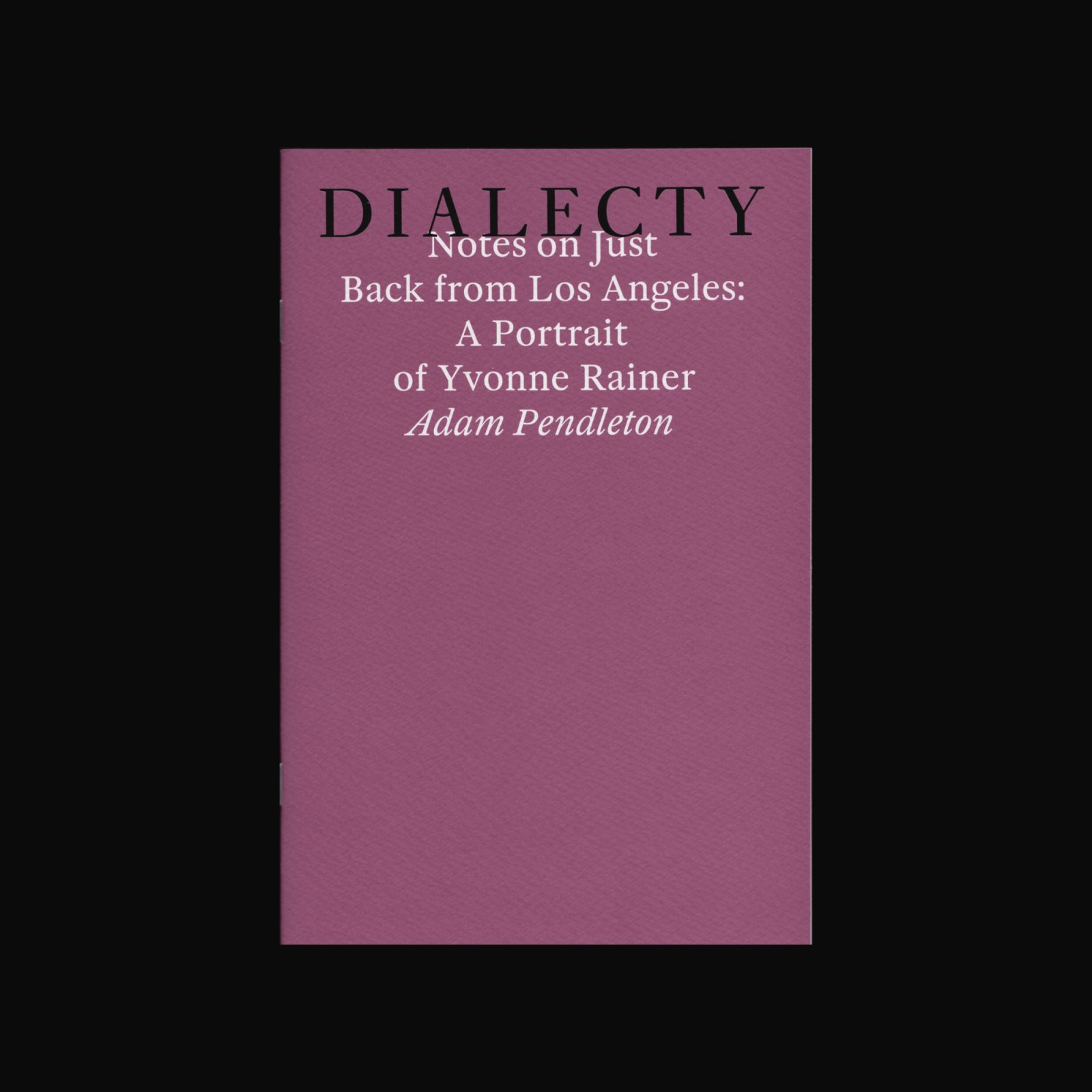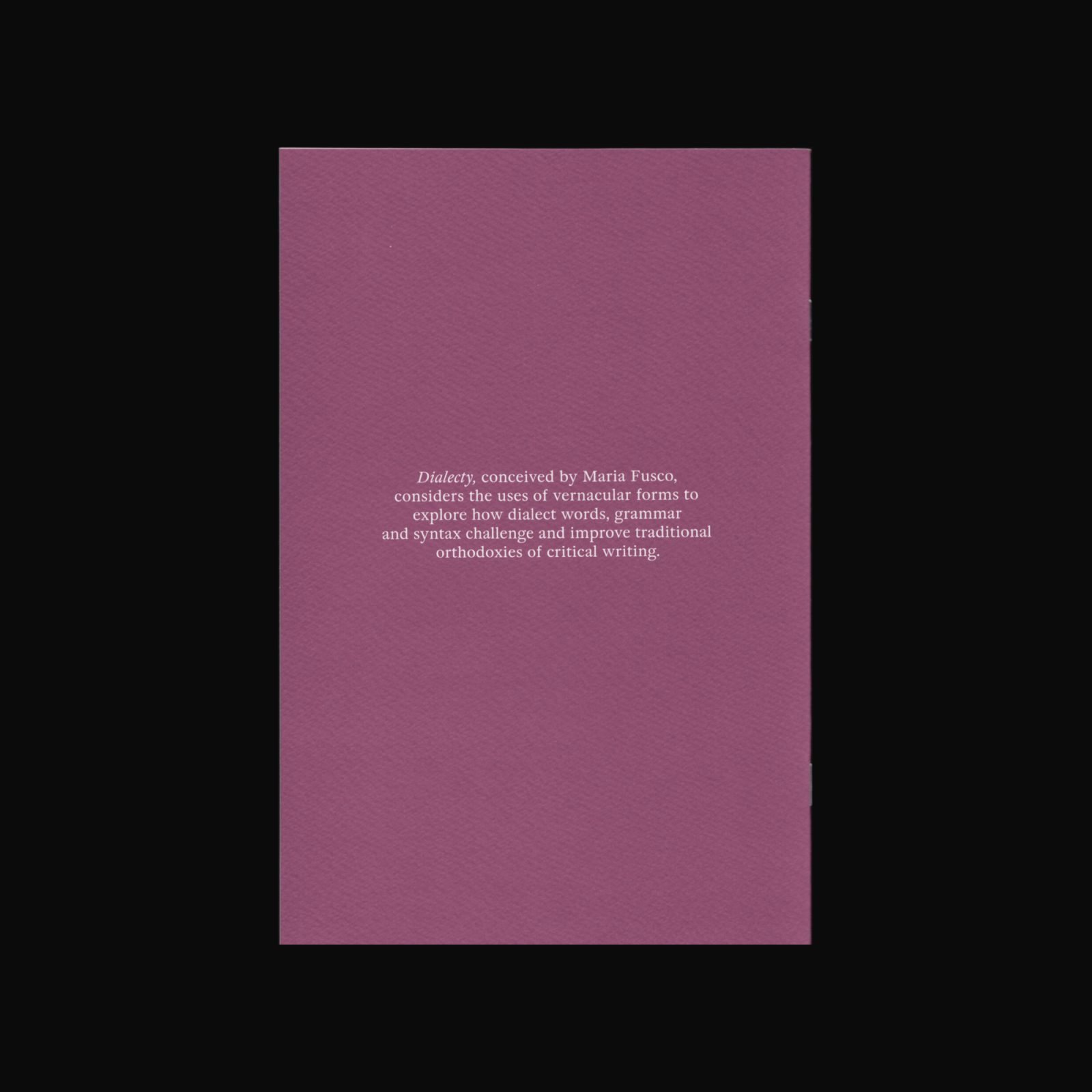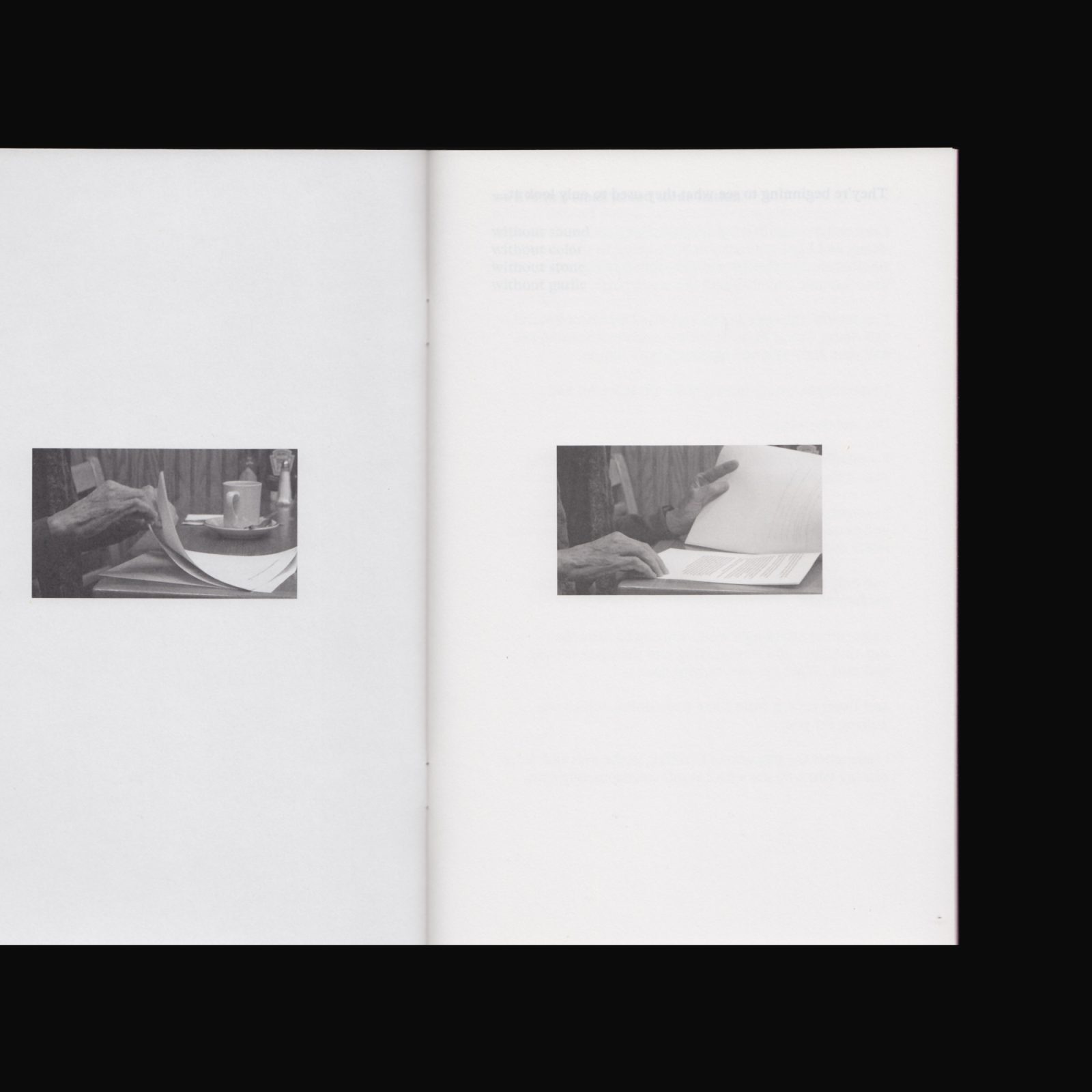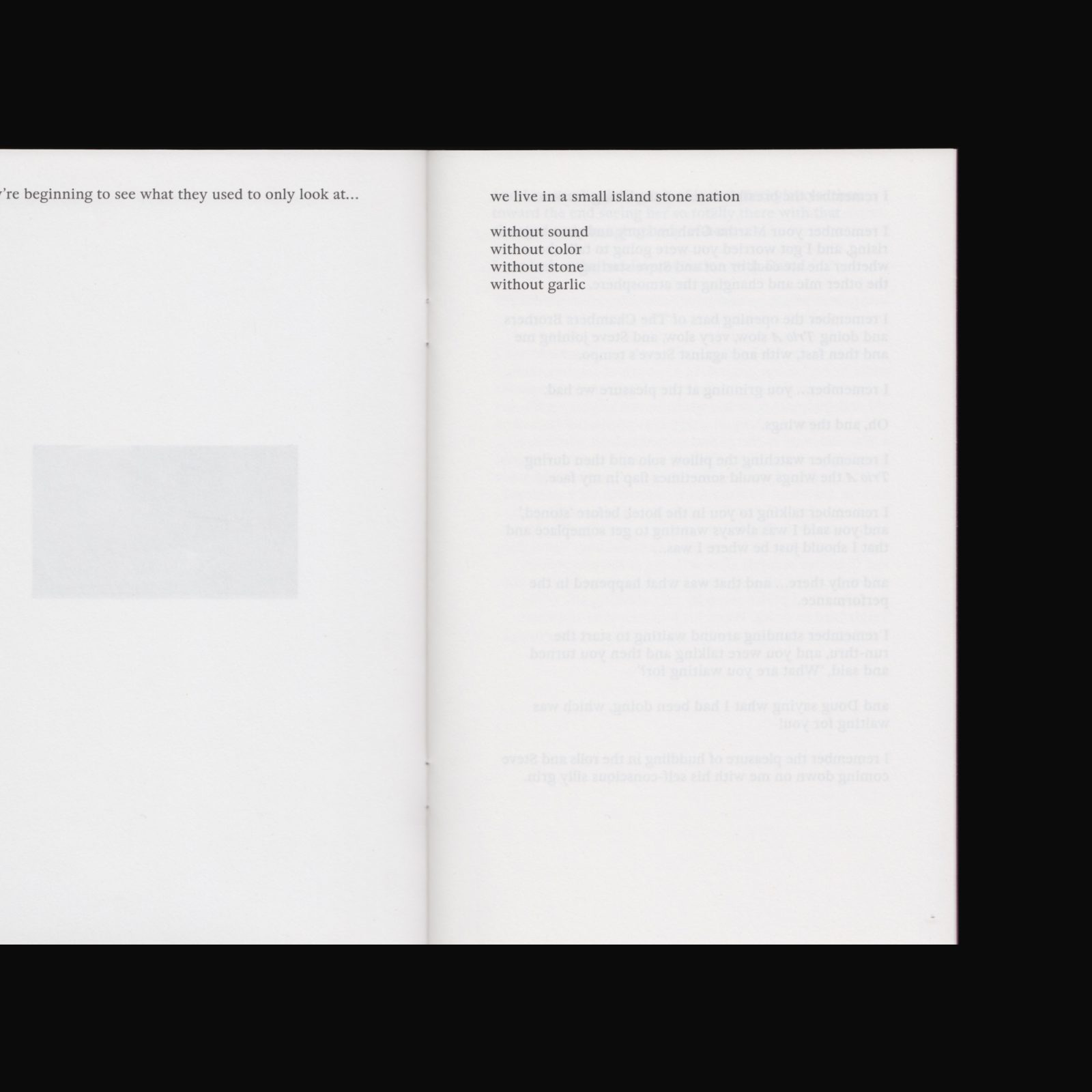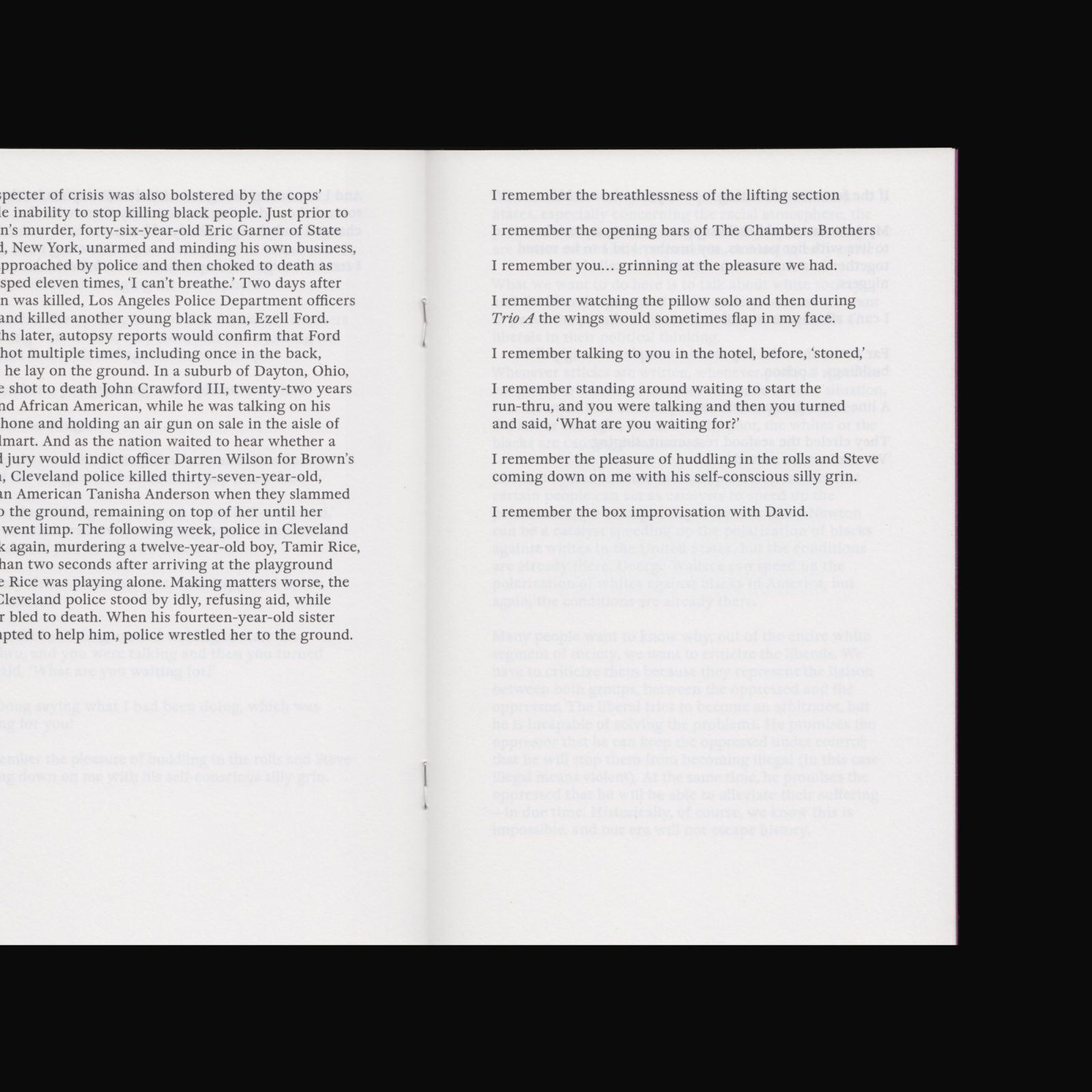- ‘Shetland wis won by Harald Hårfagre, in da days whan
- da Vikings wir settin oot in aa da aerts wi dir axes,
- longboats and stinkin haps tied aboot dir backs. Dis cam eftir
- da time dat giants roamed an fokk wid wakken in
- dir beds tae hear bairns greetin wi a big wan clawed trow
- comin in da bedroom window, tearin at dir throats.’
Helen Nisbet makes a return to family history and memories of Shetland and the displaced reverberations in her contemporary life.
Dialecty, conceived by Maria Fusco with The Common Guild, considers the uses of vernacular forms of speech and writing, exploring how dialect words, grammar and syntax challenge and improve traditional orthodoxies of critical writing.
